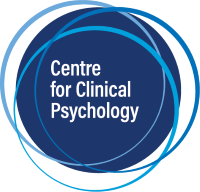Can you still treat someone with PTSD while they are drinking heavily? A common question from clinicians.
Stefanie Lo Sovo and colleagues (2022) examined treating PTSD with CPT in heavy drinking military personnel. They examined the drinking and PTSD treatment outcomes for 127 service members participating in a clinical trial of variable-length CPT. There were 88 nonhazardous and 39 hazardous drinkers.
What is heavy drinking?
The Quick Drinking Screen (QDS) was used to characterize drinking.
The QDS assesses
- Mean number of drinking days,
- Mean number of drinks on drinking days
- Greatest number of drinks in one day over the past 2 weeks.
Heavy drinking (hazardous) was based on
1) consumption on a drinking day
- >4 drinks for men
- >3 for women
and/or
2) consumption in a week
- >14 drinks for men
- >7 for women
The QDS was administered at baseline and posttreatment.
What is better?
The question of better, recovered or when is treatment successful can be examined from many perspectives. In this research good end-state was defined as <20 on the PTSD Checklist for DSM–5 (PCL5). Treatment non-responders were defined as those who completed 24 sessions or 18 weeks of treatment without good end-state.
What were the outcomes?
- There were no differences in number of sessions to reach good end-state or dropout (<20 on the PCL5). The median number of sessions needed to reach good end-state was 12.
- Hazardous drinkers had more PTSD symptom reduction than those without.
- The overall number of hazardous drinkers decreased from 30.7% to 18.6%.
- Almost 20% of those whose drinking was classified as hazardous at baseline continued to drink in a hazardous range.
Caveat Emptor
- There was no comparison condition, thus it is not possible to conclude that the reductions in problematic alcohol use were due to the therapy.
- There were unequal sample sizes, with a smaller of hazardous drinkers (n=39).
- The sample size was relatively small (n=127), which can increase the risk of failing to detect differences.
- Not all participants returned for the 1-month follow-up, during which the CAPS-5 and QDS were readministered. Thus the 1 month remission analysis was a smaller sample size.
Conclusions and Clinical Implications
The authors of this study concluded that their results “support using CPT for military personnel with PTSD and hazardous drinking and indicate that those with hazardous drinking can benefit from PTSD treatment without additional treatment sessions.”
They also suggested that some individuals with comorbid PTSD and hazardous drinking may benefit from additional alcohol-related treatments. As indicated by the almost 20% of hazardous drinkers at baseline continuing to drink in a hazardous range at the end of treatment.
In another article on this blog substance use disorder (SUD) and PTSD treatment research has been outlined. This discusses those with PTSD first compared to those with SUD first.
The assumption of drinking as avoidance of PTSD symptoms ( as per the self-medication hypothesis (Chilcoat & Breslau, 1998; Hawn et al., 2020) may not be true in all cases. It is worth considering further treatment for alcohol use difficulties post PTSD treatment.
References
Bountress, K. E., Badour, C., Flanagan, J., Gilmore, A. K., & Back, S. E. (2018). Treatment of Co-Occurring Posttraumatic Stress Disorder and Substance Use: Does Order of Onset Influence Outcomes?. Psychological Trauma: Theory, Research, Practice, and Policy. 2018 Nov;10(6):662-665. doi: 10.1037/tra0000309
Chilcoat, H. D., & Breslau, N. (1998). Investigations of causal pathways between PTSD and drug use disorders. Addictive Behaviors, 23(6),827–840. https://doi.org/10.1016/S0306-4603(98)00069-0
Hawn, S. E., Cusack, S. E., & Amstadter, A. B. (2020). A systematic review of the self-medication hypothesis in the context of posttraumatic stress disorder and comorbid problematic alcohol use. Journal of Traumatic Stress, 33(5), 699–708. https://doi.org/10.1002/jts.22521
LoSavio, S. T., Straud, C. L., Dondanville, K. A., Fridling, N. R., Wachen, J. S., McMahon, C. J., Mintz, J., Young-McCaughan, S., Yarvis, J. S., Peterson, A. L., & Resick, P. A. (2022). Treatment responder status and time to response as a function of hazardous drinking among active-duty military receiving variable-length cognitive processing therapy for posttraumatic stress disorder. Psychological Trauma: Theory, Research, Practice, and Policy. Advance online publication. https://doi.org/10.1037/tra0001268



